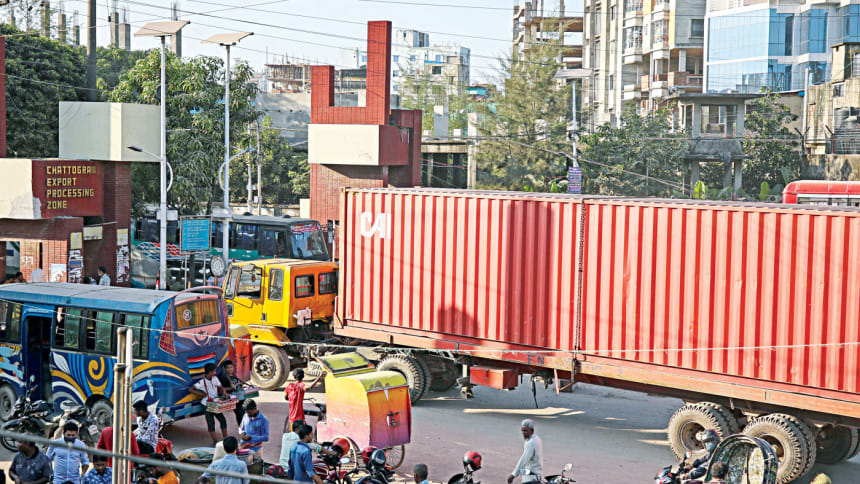Container use made easier for EPZ factories

The National Board of Revenue has made it easier for firms in the country's export processing zones to use import-export containers, a move that will likely expedite the process and reduce the costs for exporters.
Until recently, factories inside the EPZs had to return empty containers to the shipping agent's depot immediately after unloading the imported goods at their premises.
And even if they had goods ready for export, they would have to recall empty containers for loading their goods.
As the practice wastes time and increases costs, the NBR issued a standard operating procedure (SOP) for the round use of containers by companies in the EPZs to streamline the process.
Firms located in the eight EPZs in Bangladesh collectively registered nearly one-fifth of the country's exports of $33,670 million in the fiscal year 2018-19.
As per the SOP, these companies can now return the containers with export-oriented products after unloading their imported goods.
"This is a good initiative as it will increase our flexibility," said Syed M Tanvir, managing director of Pacific Jeans, a leading garment exporter operating in the Chattogram EPZ.
However, factories will only be able to reap the benefit if they receive shipment orders from exporters that use the same shipping line and freight forwarders delivering the imported goods.
"If we get the same shipping line and freight forwarders, definitely it will benefit us," Tanvir added.
The move followed a meeting between Japanese companies and senior officials of various government bodies on November 26 last year.
The meeting participants included the senior officials of the Japanese embassy in Dhaka, the Economic Relations Division, the Bangladesh Investment Development Authority, the Bangladesh Export Processing Zones Authority and Bangladesh Bank, according to the meeting minutes.
At the meeting, Japanese investors raised the issue of bringing utility to container use.
The Japanese delegation urged the NBR to allow the round use of containers. Later, the NBR formed a panel for issuing the latest notification.
"I am excited since this move will reduce time, cost and hassle," said Ahsanul Huq Chowdhury, chairman of the Bangladesh Shipping Agents Association.
However, the success of the initiative would depend on how exporters and importers reap the benefits, he added.
The initiative comes at a time when the government has implemented various measures, including policy reforms, to lure foreign investors, particularly those from Japan.
In the SOP issued on November 5, the NBR attached certain conditions for firms inside the EPZs looking to avail this benefit. The conditions include taking orders from shipping agents or freight forwarders.
EPZ-based factories are also required to secure approval from customs for each consignment.
Until fiscal 2019-20, the cumulative investment by factories in the EPZs was $5,290 million and they collectively created 46,600 jobs, according to data from the Bangladesh Export Processing Zones Authority.

 For all latest news, follow The Daily Star's Google News channel.
For all latest news, follow The Daily Star's Google News channel. 



Comments